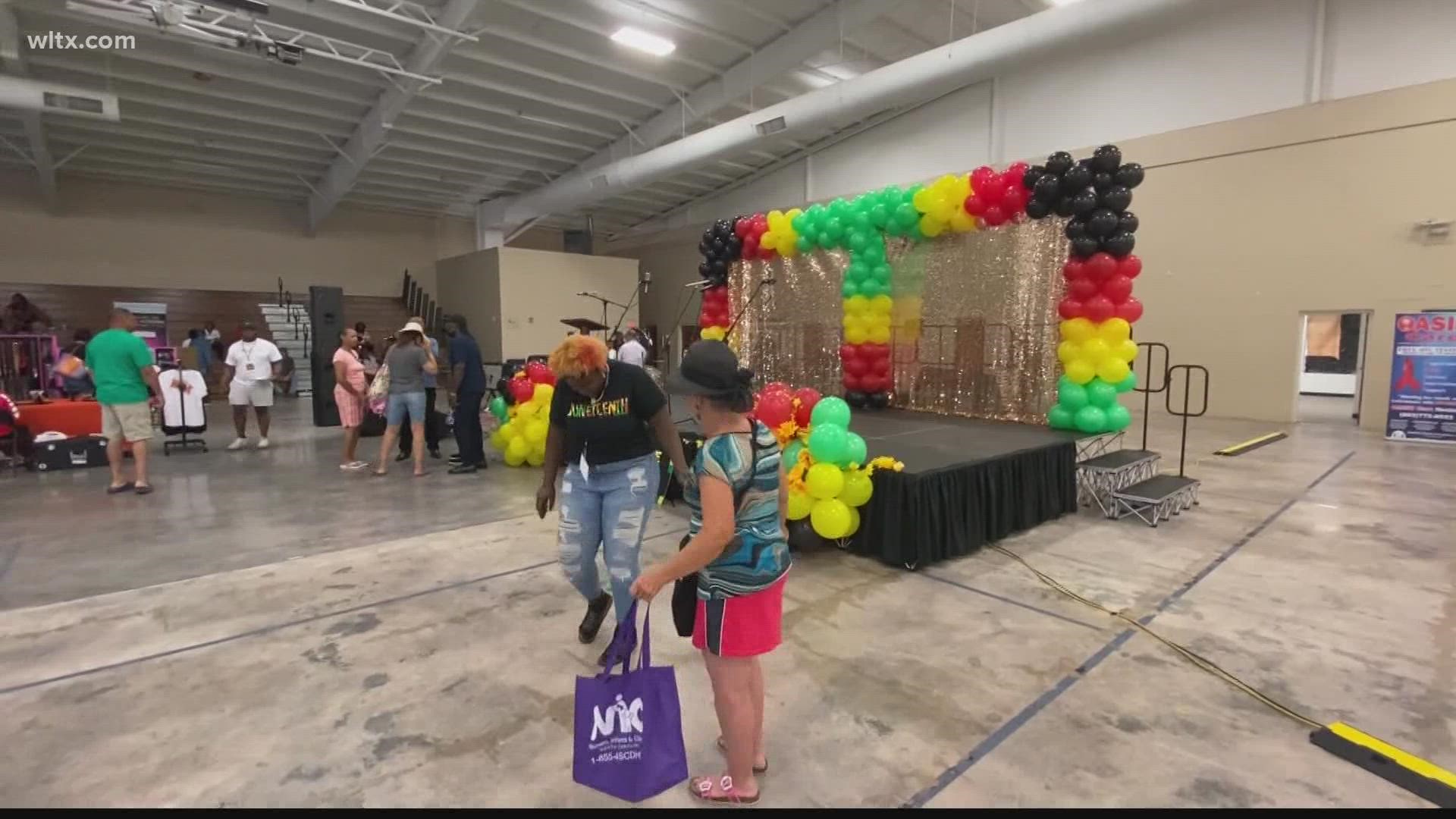COLUMBIA, S.C. — Juneteenth is the nation's youngest federal holiday, but its roots go back more than 150 years.
The United States celebrated its first federally-recognized Juneteenth in 2021 after President Joe Biden signed a bill creating Juneteenth National Independence Day.
Recognition of the holiday gained traction in 2020 amid nationwide protests over police killings of Black Americans including George Floyd and Breonna Taylor.
While signing the bill establishing Juneteenth as a federal holiday, Biden called Juneteenth "a day of profound weight and profound power, a day in which we remember the moral stain, the terrible toll that slavery took on the country and continues to take."
It became the nation's 12th federal holiday -- the first one added since Martin Luther King Jr. Day was established in 1983.
Though its federal recognition is new, Juneteenth has been celebrated by generations of Black Americans.
The history of Juneteenth
Juneteenth originated in Galveston, Texas, after the end of the Civil War.
Through the Emancipation Proclamation in 1863, enslaved people in the Confederate states were declared legally free.
"Union soldiers, many of whom were black, marched onto plantations and across cities in the south reading small copies of the Emancipation Proclamation spreading the news of freedom in Confederate States," describes the National Museum of African American History and Culture.
But the proclamation couldn't be enforced in places still under Confederate control. For the enslaved people of Texas, freedom wouldn't come until after the end of the Civil War.
On June 19, 1865, Union Major Gen. Gordon Granger and his troops arrived in Galveston Bay, announcing that the quarter million enslaved Black people in Texas were free by executive decree.
That was more than two months after Confederate Gen. Robert E. Lee surrendered to Union Gen. Ulysses S. Grant in Virginia.
Laura Smalley, freed from a plantation near Bellville, Texas, remembered in a 1941 interview that the man she referred to as “old master” had gone to fight in the Civil War and came home without telling the people he enslaved what had happened.
“Old master didn’t tell, you know, they was free,” Smalley said at the time. “I think now they say they worked them, six months after that. Six months. And turn them loose on the 19th of June. That’s why, you know, we celebrate that day.”
While signing the bill establishing Juneteenth as a federal holiday, Biden called Juneteenth "a day of profound weight and profound power, a day in which we remember the moral stain, the terrible toll that slavery took on the country and continues to take."
It became the nation's 12th federal holiday -- the first one added since Martin Luther King Jr. Day was established in 1983.
Though its federal recognition is new, Juneteenth has been celebrated by generations of Black Americans.
The history of Juneteenth
Juneteenth originated in Galveston, Texas, after the end of the Civil War.
Through the Emancipation Proclamation in 1863, enslaved people in the Confederate states were declared legally free.
"Union soldiers, many of whom were black, marched onto plantations and across cities in the south reading small copies of the Emancipation Proclamation spreading the news of freedom in Confederate States," describes the National Museum of African American History and Culture.
But the proclamation couldn't be enforced in places still under Confederate control. For the enslaved people of Texas, freedom wouldn't come until after the end of the Civil War.
On June 19, 1865, Union Major Gen. Gordon Granger and his troops arrived in Galveston Bay, announcing that the quarter million enslaved Black people in Texas were free by executive decree.
That was more than two months after Confederate Gen. Robert E. Lee surrendered to Union Gen. Ulysses S. Grant in Virginia.
Laura Smalley, freed from a plantation near Bellville, Texas, remembered in a 1941 interview that the man she referred to as “old master” had gone to fight in the Civil War and came home without telling the people he enslaved what had happened.
“Old master didn’t tell, you know, they was free,” Smalley said at the time. “I think now they say they worked them, six months after that. Six months. And turn them loose on the 19th of June. That’s why, you know, we celebrate that day.”
Freed people in Galveston started celebrating Juneteenth -- a combination of the words "June" and "Nineteenth" -- a year later. The commemoration spread across the United States as Black Texans moved.
How is Juneteenth celebrated?
Juneteenth celebrations around the country include picnics, block parties and larger gatherings including parades.
The vast majority of states recognize Juneteenth as a holiday or a day of recognition, like Flag Day. This year, nearly 20 states are expected to close state offices and give most of their public employees time off for Juneteenth. Fewer have made it a paid holiday. Many states have been slow to do more than issue a proclamation or resolution, even as some continue to commemorate the Confederacy.
The Associated Press contributed to this report.

